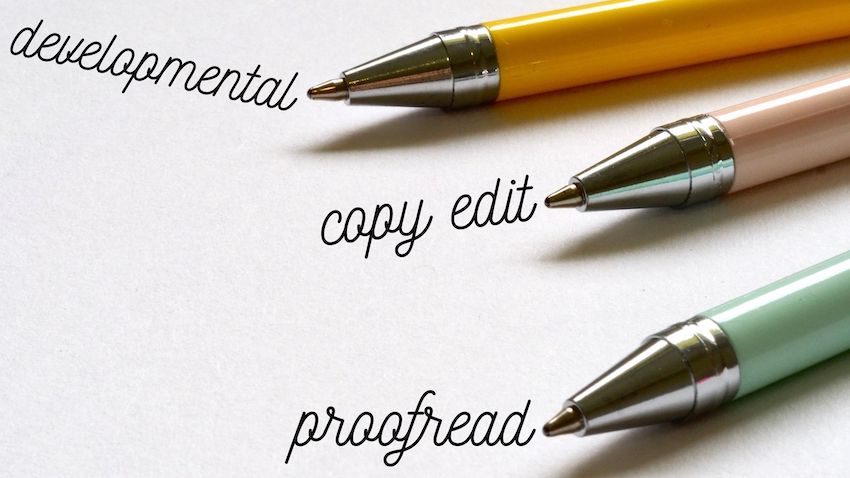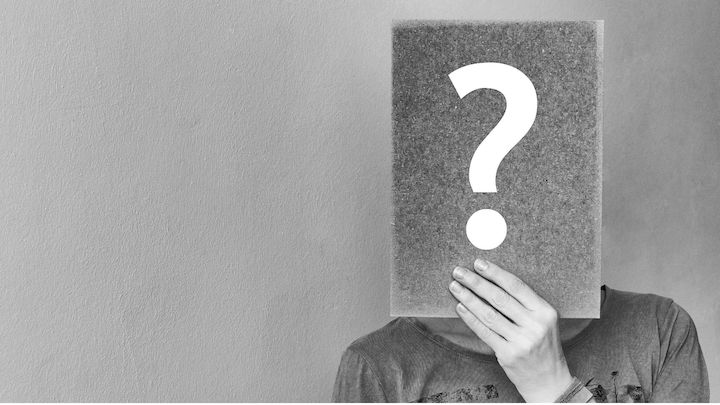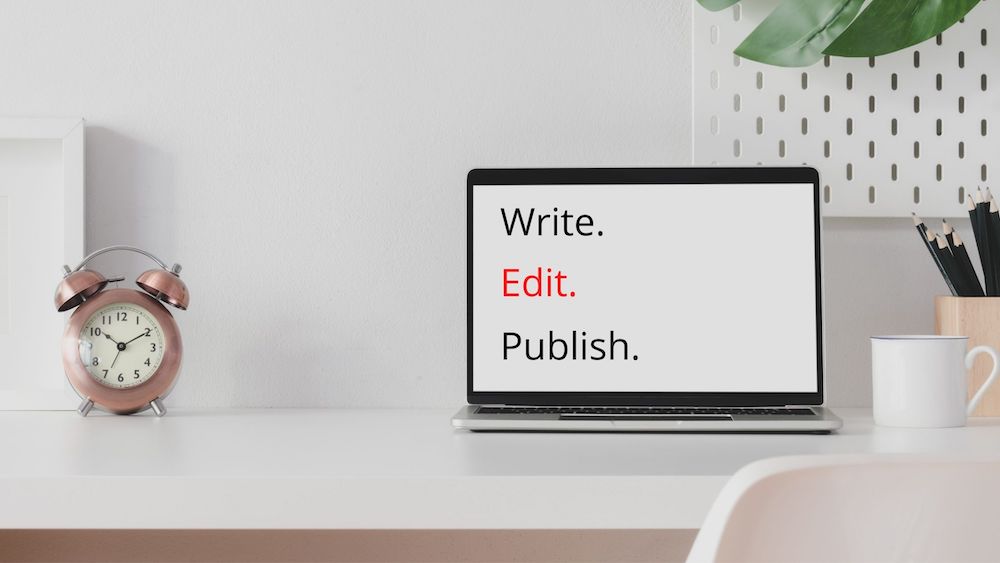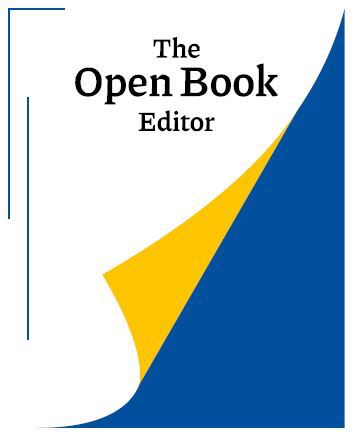So, you’ve finished your book and are considering working with a professional book editor, but aren’t sure if it’s worth your time and money. How do you know if you need to stop editing and hire a pro? Is one editor enough? How do you know if an editor is any good? And what do editors do you can’t do yourself?
You’re not alone. While it might be exciting to work with a book editor at first, it can become daunting when faced with so much choice. Book editing is much more than checking for spelling errors and letting you know whether “it works”.
From what to expect from a professional book editor to how to hire the right one for you (and avoid the scammers), let’s dive into this concise guide about the role of a professional editor.
What does a book editor do?
Think of your book as a house: you’ve laid the foundation and built an entire structure on top. You’ve spent time putting in windows and doors, and given the building its own character. But now you’ve finished, what comes next? A book editor is a contractor who comes in after it’s completed to ensure there aren’t any structural issues, give it a nice coat of paint, and, ultimately, help you feel confident and ready to sell it.
A book editor will pay close, personal attention to your project and polish it up, so it’s publisher-ready. This can range from edits on the overall structure of the story to correcting typos and grammar mistakes. Below are some of the different types of editors and what exactly they do when editing your book.
What are the different types of editing?

When you edit your book, you can (or should) complete multiple rounds of edits, each with a different purpose. Trying to edit everything all at once will almost always overwhelm you. By breaking it down, you can invest sufficient time and energy into every aspect of your book without burning out.
Professional book editors are experts at taking large, complex manuscripts and wearing different editing ‘hats’. This enables them to focus on specific areas at any one time, meaning comments are more precise and useful. More holistic and experienced editors tend to summarise feedback, as well, so you can see how certain aspects of your writing might relate to each other.
For example, your voice might not work in a given scene not because of bad writing, but because of inconsistent characterisation.
Tip: Some editors are experienced at completing all book edits, like The Open Book Editor, while others prefer to focus on just one specific type. You should always hire the editor you believe is most experienced, qualified, and appropriate for the type of editing you need. Editors usually charge per project, so you shouldn’t expect to make huge savings by hiring one editor multiple times or by hiring several different editors. Of course, some editors might offer discounts if you pay for multiple rounds of edits upfront. Otherwise, the main advantage of hiring the same editor more than once is you have a better chance to build a professional working relationship with that person.
There are three main types of book edits your editor(s) can complete:
Developmental edit
A developmental edit is usually the first step in the editing process and focuses on large-scale edits of your book. The book editor will examine your book as a whole and suggest big-picture changes. For example, a developmental editor will check that your plot moves smoothly from the first page to the last and flag any potential plot holes. They’ll ensure you have believable characters with arcs that make sense for the story. And critique the overall structure and order of your book to improve readability.
As a much more open-ended edit, editors will complete developmental edits in their own way. For example, The Open Book Editor will complete the developmental edit in two parts. First, line editing, where you will receive your manuscript back with line-by-line notes pointing out specific things you do well, as well as points of concern. Second, you will receive an in-depth assessment report, where the book editor breaks down every big-picture element of your book, including plot, characters, structure, and style.
Copy edit
Copy edits do the opposite of a developmental edit: they focus on the “small” stuff.
A copy editor checks for consistency in style, corrects spelling and grammatical errors, and determines if the sentence structure is clear and logical. For example, a copy editor might ask you to correct basic grammar (like adding or removing commas), reword sentences, and rewrite sections where the voice lacks consistency. You can also expect basic fact-checking, such as flagging potential anachronisms.
Proofread
There is some overlap between book editors who copy edit and book editors who proofread, but the distinction is important. Typically, the proofreader is the final editor to work on a manuscript; they are the last line of defence before the book goes to print.
A proofreader’s job is to catch any potential issues that might have been missed in previous rounds of editing. They will catch inconsistencies with grammar, capitalisation, font, and layout. In general, proofreaders expect to make as few corrections as possible. It isn’t uncommon for proofreaders to return manuscripts to authors where extensive work is needed, advising they get a developmental edit or copy edit, instead.
What makes a good editor?

Just like with any profession, there are great editors and there are not-so-great editors. So, how do you know if an editor is worthwhile or not?
An editor is there to work with you to make your book better. A good editor won’t mould a book to suit their personal vision. Instead, they will serve as a guide to help you improve your work without compromising on your unique voice, concept, or style.
You should avoid editors who micromanage the edits you can make, aren’t open to discussions about the work, want to change the message of the book, or make changes for you instead of suggesting them to you. As the author, you always have the final say and should never feel you can’t say no to edits. An editor–author relationship should empower the author to take their book to the next level.
Always do some internet sleuthing before hiring a book editor. Check their qualifications, read testimonials, and look at the books they’ve worked on. You can also reach out to authors who have worked with an editor to get an honest review.
Checklist of questions to ask an editor
- What are your qualifications?
- How much experience do you have as an editor?
- Have you edited my genre before?
- Do you perform a specific type of editing or all types?
- Which type of edit do you think is right for my book in its current state?*
- Will you perform a free sample edit for me?**
- How do you prefer to communicate throughout the project? How do you deliver feedback?
- Can I ask you questions during and after the edit has been completed?
*The main purpose here is to see how honest the editor is. If they say they’ll do everything and anything for you, they’re probably not as professional as they could be and are just over-promising to secure your business.
**Most professional book editors won’t show you sample edits from other clients to protect the intellectual property and privacy of those clients. However, many editors offset this by offering free sample edits.
Use these questions as an opportunity to get to know the editor. While editors are professional critiques, they should also match your personality and understand your ambitions, so you receive feedback in a way that resonates with you and inspires you to continue improving your book.
Should you hire a book editor?

You can do a lot of editing yourself (called self-editing), as well as get help from beta readers. But it’s a good idea to go that extra mile for your book by hiring a professional book editor.
Not only will an editor give you peace of mind that your book is ready for publication, but book editors are experts in their field with a lot of industry knowledge. Regardless of what type of publication you’re aiming for, a book editor can offer tips and information about every step of the process.
For example, here at The Open Book Editor, our knowledgeable editors won’t just give you feedback to improve your book. We also provide tips about how to develop as a writer in general. We can assist you with your query letter and synopses if you intend to find a literary agent. And with our Author Coaching service, we can guide you as much as you desire in almost any area of book writing, from helping you plan and craft it to answering questions about the industry and which publishing strategy is best for you and your book.
Tip: If you get a traditional publishing contract, you will likely be assigned a free in-house editor to work with. However, first-time authors often need to hire an editor to get the book to the level where it garners the attention of agents and publishers in the first place.
Meanwhile, a professional book editor is strongly recommended if you choose to self-publish or go with a hybrid publisher.
Where to look for a book editor?
At The Open Book Editor, we prioritise honesty, integrity, communication, and kindness above all else. We have extensive experience working on a range of genres for both traditionally published and first-time authors.
That being said, we also know when we’re not right for a project. If you come to us and we’re not the perfect fit, we’ll recommend how to find other reliable editors.
Either way, we’d love to chat with you about your book, so give us a shout!

